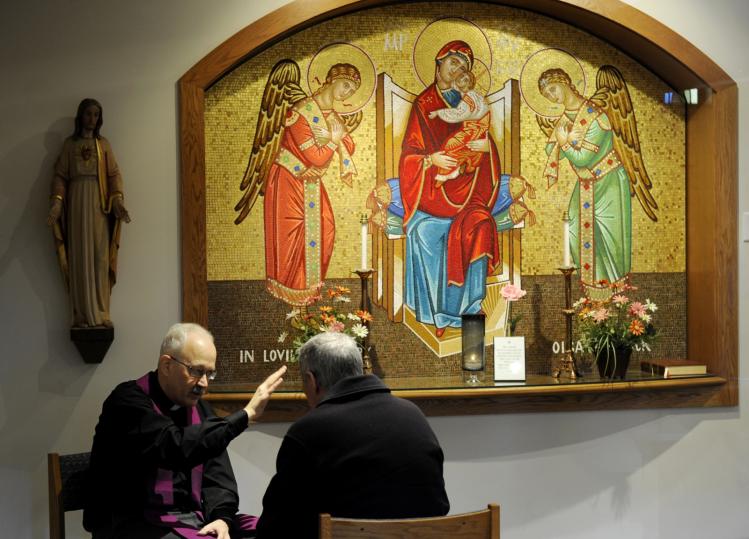
Forty-seven years. At first, I didn’t think I’d heard her correctly, even though we sat face-to-face in the quiet church. She said it again: “It’s been forty-seven years since my last confession.”
It never fails to thrill me when someone decides to give this sacrament another shot after such a long time away. I am respectful of the courage it takes to overcome the nervousness and anxiety. I am humbled by the fact that he or she chose this church and this priest. I am aware of the beautiful and complex fragility of the human being who sits in front of me, and I am awed by the Spirit that never gives up, the Spirit who ceaselessly urges us closer to the divine. All of this causes me to ask the first question I always ask. Right after a heartfelt word of welcome (and a reminder to take a deep breath!), I ask: “Why now? Why tonight? What was it about today that would bring you here after so many years?”
I used to expect that something tragic had just happened to impel a person to seek a priest with a stole, perhaps some sort of loss or a grim medical diagnosis. That is almost never the case. In practically every instance, revisiting the sacrament is simply something a person has been considering for a while, sometimes years. Then something catches their attention, like the Lenten campaign that stirred the woman mentioned above. The campaign is the brilliantly straightforward idea that during the weeks of Lent, the doors of every church in the diocese are open every Wednesday night from eight until ten for the Sacrament of Reconciliation. Just walk in.
Like many others before her, that woman did just that. In these souls, who are mostly searching for a place to talk about God and faith, there are some lessons for the church. First, reports of the death of the Sacrament of Reconciliation are greatly exaggerated. True, there are no longer long lines of people waiting for a quick absolution on Saturday afternoons. Or at wedding rehearsals! What is more common is the uncomfortable, and instantly recognizable, look on the face of a parent attending a formation session for a child’s first Reconciliation. The look betrays the fact that the parent never darkened the confessional a second time after being initiated into the sacrament as a child.
Yet my experiences Wednesday evenings in Lent have convinced me that the sacrament is still very much alive. It still has a vital pulse, but you have to look for it in new places and perhaps speak of it using new language. For instance, weekends are precious family time for young families, since the rest of the week is taken up with hectic commuting schedules and after-school activities. As a consequence, going to Reconciliation in the middle of a Saturday afternoon makes little sense. So why not offer the sacrament on evenings during the week? You will be surprised by who shows up. People often stop in to church for a little quiet time to shake off the stresses of the job just before going home. If a priest is available he can provide an invitation to “sacramentalize” that time. The result is often a way of reconnecting life to a sense of God and faith.
Also, I’ve worked with many counselors and therapists over the years who have directed their patients toward the Sacrament of Reconciliation. The ritual can be powerfully adapted to speak to a variety of needs, including twelve-step recovery programs, obsessive-compulsive disorders, and issues of grief and loss.
I should be clear that I’m not referring here to a “say one Our Father and two Hail Marys” sort of confession. The celebration of the sacrament that I have in mind is more about spiritual direction and tracing the areas of growth and the lines of grace in a person’s life. Not all priests are skilled at facilitating that encounter, but I believe that every diocese has at least a few who possess the compassionate, healing nature of Christ that is fundamental to the sacrament. We would all do well to seek them out, receive their blessing, and ask their advice about this still-evolving practice. Maybe that would result in fewer fifty-year gaps between confessions and a holier, healthier church.

